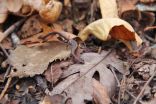(Press-News.org) Computer based 'brain training' can boost memory and thinking skills in older adults, but many programs promoted by the $1 billion brain training industry are ineffective, reveals new research by the University of Sydney.
Published today in PLOS Medicine, the study shows that engaging older adults computer-based cognitive training (also known as brain training) can lead to improvements in memory, speed, and visuospatial skills.
However, it has no impact on attention or executive functions such as impulse control, planning and problem solving.
Brain degeneration and cognitive impairment are among the most feared outcomes of growing old. With dementia predicting to engulf more than 100 million people across the globe by 2050, reducing incidence of dementia is of ever-increasing importance.
Dementia refers to a progressive decline in a person's mental functioning to the point they can no longer carry out day to day tasks.
Promising new evidence now indicates that engaging in challenging mental activities can help maintain cognition and lower the risk of dementia.
In response, a lucrative brain training industry has quickly developed, tapping into the anxieties of baby boomers now entering retirement age and eager to start activities that protect their brains.
This new research by the Regenerative Neuroscience Group at the Brain and Mind Research Institute (BMRI) reveals that engaging in group-based brain training under the supervision of a trainer is effective at improving performance on a range of cognitive skills in healthy older adults.
By contrast, self-directed brain training at home had no therapeutic effect on cognition.
"Our results send a key message to the public," says group leader Associate Professor Michael Valenzuela.
"They show that brain training carried out in a centre can improve cognition in older adults, but commercial products promoted for solo training use at home just don't work. There are better ways to spend your time and money".
The research team combined outcomes from 51 randomised clinical trials, including almost 5,000 participants, using a mathematical approach called meta-analysis.
"This is a very large number of clinical trials and the results were conclusive," says A/Prof Valenzuela.
"We now understand how to prescribe brain training based on the highest standards of medical evidence."
Part of this prescription is the frequency of training, also identified as an important factor.
Lead author of the study Dr Amit Lampit of the BMRI said that: "Training one to three times a week was effective, but training more than this neutralised any cognitive benefits.
"The brain's plastic mechanisms may saturate if training is too frequent. Like strenuous physical exercise, we recommend at least one rest day between training sessions."
Valenzuela emphasises that is it important to put the results in perspective: "Modest gains are to be expected. This is not a magic bullet and we still don't know if this type of activity can prevent or delay dementia. Much more research is needed," he said.
Fast facts:
Brain training (computerised cognitive training, CCT) is a procedure for enhancing memory and thinking skills by practicing mentally challenging exercises on computer.
The most common cause for dementia is Alzheimer's disease. It can affect memory, thinking, orientation, comprehension, calculation, learning capacity, language and judgment.
Dementia will soon engulf more than 100 million people across the globe
More than 330,000 Australians are living with dementia
More than 1,700 new cases of dementia are diagnosed in Australia weekly
Without effective prevention or a cure, more than a million Australians will be living with dementia by 2050
Dementia risk factors include hypertension, diabetes, cardiovascular disease, smoking, depression, physical inactivity and obesity
Dementia will become the third greatest source of health and residential aged care spending within two decades.
INFORMATION:
HOUSTON, Nov. 18, 2014 - The quest of University of Houston professor Richard Meisel to understand how and why males and females differ may one day lead to a more effective means of pest control - namely, the pesky house fly.
Meisel, an assistant professor in the UH Department of Biology and Biochemistry, collaborated with several scientists on sequencing the house fly genome. The results were recently published in the open-access journal Genome Biology.
"The house fly genome will be a useful resource for understanding how pest species are able to exist in their environment ...
WASHINGTON, DC-- Small volcanic eruptions might eject more of an atmosphere-cooling gas into Earth's upper atmosphere than previously thought, potentially contributing to the recent slowdown in global warming, according to a new study.
Scientists have long known that volcanoes can cool the atmosphere, mainly by means of sulfur dioxide gas that eruptions expel. Droplets of sulfuric acid that form when the gas combines with oxygen in the upper atmosphere can remain for many months, reflecting sunlight away from Earth and lowering temperatures. However, previous research ...
EUGENE, Ore. -- Nov. 18, 2014 -- Leave it to long-dead short-tailed shrew and flying squirrels to outfox climate-modelers trying to predict future habitats.
Evidence from the fossil record shows that gluttonous insect-eating shrew didn't live where a species distribution technique drawn by biologists put it 20,000 years ago to survive the reach of glaciers, says University of Oregon geologist Edward B. Davis. The shrew is not alone.
According to a new study by Davis and colleagues, fossil records of five ancient mammalian species that survived North America's last glacial ...
Hamilton, ON (Nov. 18, 2014) - McMaster University researchers have found new evidence that suggests patients with a history of adverse reaction to the blood thinner heparin may be ready for urgent heart surgery sooner with a combination of appropriate blood screenings and therapeutic plasma exchange.
The study was published online today in Blood, the journal of the American Society of Hematology. The lead author is Dr. Theodore Warkentin, a professor in the Department of Medicine's Division of Hematology and Thromboembolism and the Department of Pathology and Molecular ...
The consumption of a diet high in fructose throughout adolescence can worsen depressive- and anxiety-like behavior and alter how the brain responds to stress, according to new animal research scheduled for presentation at Neuroscience 2014, the annual meeting of the Society for Neuroscience and the world's largest source of emerging news about brain science and health.
"Our results offer new insights into the ways in which diet can alter brain health and may lead to important implications for adolescent nutrition and development," said lead author Constance Harrell of ...
Washington, D.C. - November 18, 2014 - Lumosity is presenting new research today at the 2014 Society for Neuroscience conference on how altering cognitive task parameters affects learning rates. The study, titled "Optimizing Cognitive Task Designs to Improve Learning Rates in a Large Online Population," analyzed game play performance from 99,022 participants, and found that participants operating closer to their performance threshold earlier in their experience with a cognitive task tend to have faster learning rates - especially at higher levels of difficulty.
"By looking ...
Ticagrelor halves risks of stents blocking with blood clots
Study of 18,000 patients shows cost-effective drug could prevent premature deaths
Reduces the risk of patients needing repeat operations
Treating heart attack patients with ticagrelor reduces the risk of stents blocking with blood clots according to a ground breaking new study conducted by researchers from the University of Sheffield.
The new findings confirm that treating heart attack patients with the pioneering drug ticagrelor, instead of the previous standard treatment clopidogrel, could halve the risks ...
COLUMBIA, Mo. - In the 1970s, ecologists published results from one of the first whole-forest ecosystem studies ever conducted in Hubbard Brook, New Hampshire. In the paper, scientists reported that salamanders represent one of the largest sources of biomass, or food, of all vertebrates in the forest landscape. Now, using new sampling and statistical techniques not available during the past study, researchers at the University of Missouri have estimated that the population of salamanders in forested regions of the Missouri Ozarks are 2-4 times higher than originally thought, ...
NEW YORK (November 18, 2014) - The addition of mitral valve (MV) repair (a valve of the heart) to coronary artery bypass grafting (CABG), a type of open-heart surgery, did not result in significant benefit to the patient and was associated with increased risk of neurological events. Therefore, the routine addition of MV repair to CABG in patients with moderate IMR did not demonstrate a clinically meaningful advantage.
The Cardiothoracic Surgical Trials Network (CTSN) is reporting results for the first time from a clinical trial of patients who have a complication of ...
Over the last decade, neuroscientists have largely come to believe that physical pain and social pain are processed by the brain in the same way. But a new study led by the University of Colorado shows that the two kinds of pain actually use distinct neural circuits, a finding that could lead to more targeted treatments and a better understanding of how the two kinds of pain interact.
For the study, published in the journal Nature Communications, the researchers used a technique recently borrowed from the computer science field by neuroscientists--multivariate pattern ...



